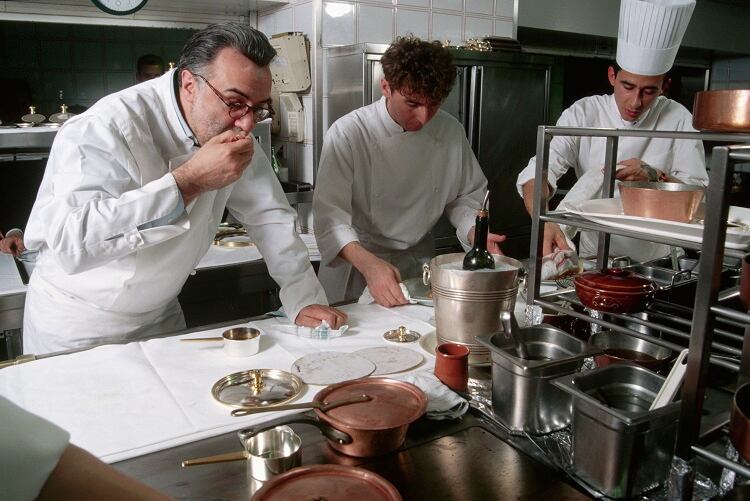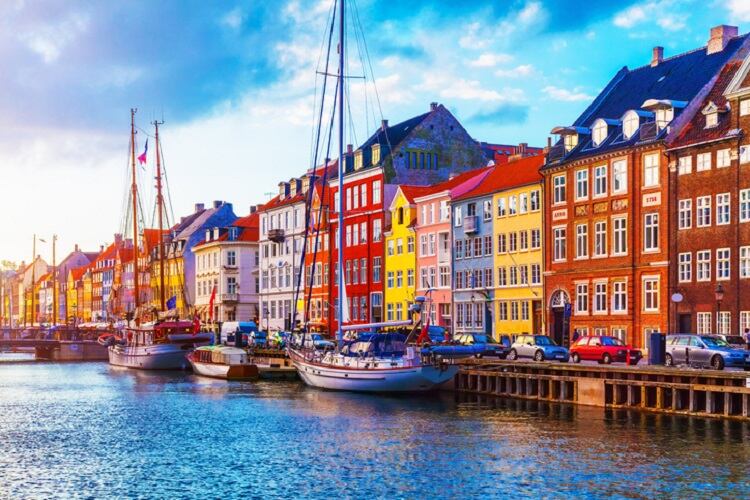Chef Alain Ducasse is regarded among the world’s best in the kitchen. Holding 21 Michelin stars over the course of his career, the decorated Frenchman owns restaurants around the world, including in France, Japan, Mauritius, Hong Kong and Lebanon.
Beyond the walls of his establishments, Ducasse is using his culinary status to change the way we eat. At the global food safety initiative (GFSI) conference in Nice this year, the chef called for a universal declaration of ‘humanist gastronomy’.
The planet is distressed, he told delegates. More than 30% of our food ends up being wasted, and many people are overweight. The world of tomorrow is in our hands, he continued.
Ducasse’s philosophy aims to link the planet with ingredients and health, as he does in his kitchens with a focus on ‘natural cuisine’. “I want to make a cuisine that shows it is possible to use these ingredients – fish, grains and vegetables – as long as they are used with care.
“If we take nature as our guide, then we shall never lose our way.”
A five-article manifesto
At the event, Christian Regouby – with whom the chef co-authored ‘Manger Est Un Act Citoyen’ (Eating is an Act of Civil Duty) – and Ducasse appealed to industry representatives to join their movement.
“Considering that eating is the most universal link between all men on earth, we want to establish and sustain a new social contract to promote an international community of territories and people,” Ducasse told delegates.
“It is up to us, today, as citizens of the world to change what is on our plates.”
Regouby and Ducasse presented the humanist gastronomy manifesto to delegates, which covers five articles. “Each article below aims to define an ambition that shall respond to the vital issues for the future of mankind,” said Ducasse.
Article 1: The right to transparency on the plate
For Ducasse and Regouby, this means increasing the traceability and transparency of food across the supply chain for the consumer.
From farm to fork, traceability should be accessible, exhaustive, as well as easy to read and understand. This covers where the food item is from, the way it was grown, reared, or manufactured. In doing so, the duo wants to uncover fraud in the food chain and oust criminals manipulating product labels.
This article also pushes for the right to be informed about, and responsible for, food choices. One must be aware of the impacts that our individual food choices have on our health and the planet, as well as on our economic, social, and cultural environment, states the manifesto.
Article 2: The right to learn about taste and cuisine.
“Learning how to taste cuisine is something that should be taught from the start. Everyone should have a free choice here.
“The duty of every adult is to transmit taste,” according to the document.
This article pushes for all citizens to understand the culture of taste as a means to improving health and diversity, and to fight against the uniformity of industrial taste.
It also covers the development of school education programmes centred around taste, that would be available for children from a young age.
The right to nurture and develop key senses, and to learn to pass them on, also falls under Article 2.
Article 3: The right to connect with the earth.
As 50% of the world’s population live in urban areas, Ducasse is pushing for a greater connection between humans and the plant.
“We need to understand the diversity of life, the magical alchemy that exists between humans and the earth,” according to the chef.
This article therefore promotes the diversity of territories, of cultures, of cuisines around the world, underpinned by a reconnection with cities and nature. This includes preserving farmland around urban sprawls.
We should favour buying seasonal and local produce, and learn to respect the earth and the laws of nature to better feed ourselves and preserve our future.
Article 4: The right to improve our health, and the health of the planet
For Ducasse and Regouby, the right to look after and improve our health, is indistinguishable from looking after the living world, including animals and plants.
The duo places emphasis on promoting eco-agriculture, while penalising industrial farming, which they demonise for destroying our ecosphere.
This article also pushes civil society to help other members of our communities to understand environmental issues and encourage them to act.
Article 5: The right to enjoy the conviviality of meals.
Meals concern us in an intimate way, three times a day, said Ducasse. They bring people together in a “powerful vector of sociability”, while also leading to peace.
‘The right to enjoy the conviviality of meals’ covers the right to support and give value to each product and every producer to develop a culture that explores diversity and empathy around group meals.
Ducasse and Regouby asked representatives to join their humanist gastronomy movement ahead of the Paris Food Forum symposium in 2020.



